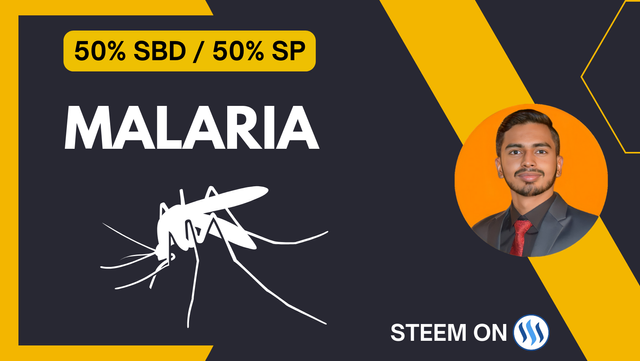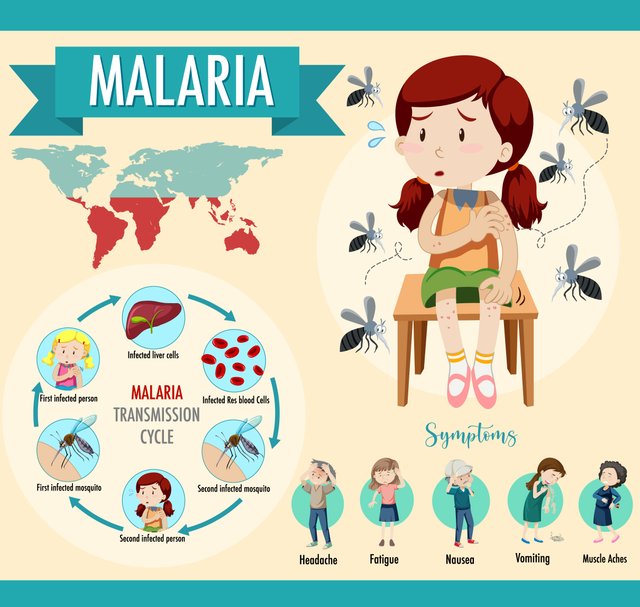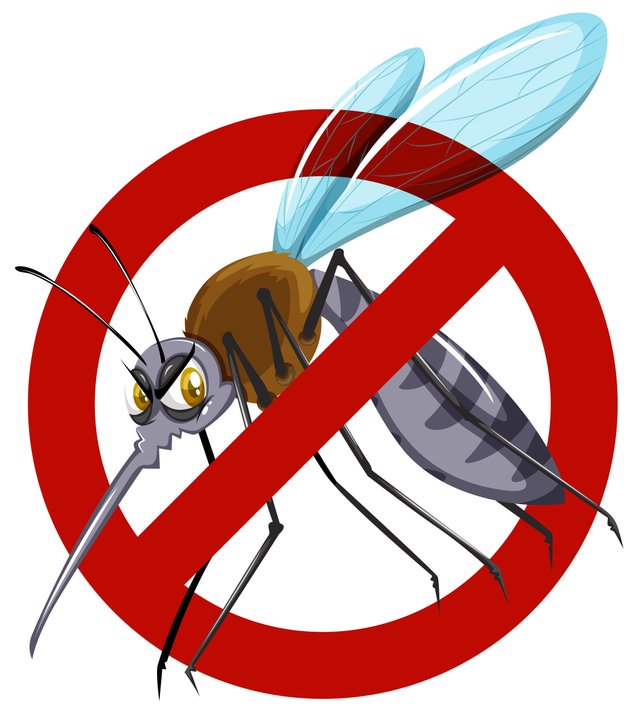Leaving No Room for Malaria

People get malaria when they cannot avoid Anopheles (mosquitoes which spread Malaria) bites. When these mosquitoes bite an infected person, the malaria parasites enter the person's bloodstream. Then when these mosquitoes bite another person, the parasites are transferred to that new person. This cycle goes on like this and this is how malaria continues to spread.
- Maintain cleanliness in your premises. Since mosquitoes lay eggs in water, you must prevent water from accumulating in any possible place.
- Use mosquito sprays and repellents. These sprays can kill mosquitoes both indoors and outdoors. Repellents can be applied to the body to prevent mosquito bites.
Use a mosquito net while sleeping. A mosquito net is a net that offers protection to you when sleeping. Some nets also have insecticides added to kill the mosquitoes.
Cover your entire body, especially at night with clothes. You can wear full-sleeved shirts and pajamas to hide almost the whole body, so the harmful mosquitoes do not bite you.
- Get Malaria vaccinations. Vaccination itself will protect you against the deadly infection, and eventually when everyone around you is already vaccinated, the spread of Malaria can be stopped.
Fever, chills, and sweating are key symptoms that indicate early onset of Malaria, and it is very important to correctly identify these symptoms since early detection of the disease prevents several deaths every year. Once someone gets Malaria symptoms of fever, chills and sweating usually set in. These symptoms occur in sets: First chills and shivering, then fever, followed by sweating. This cycle repeats every 48 to 72 hours. Malaria is curable if diagnosed early and treatment is started immediately, and the complications of the disease are avoided. If left untreated, Malaria can turn into severe and will affect organs such as the kidneys, liver, as well as even the brain. These complications are frequently life-threatening and sometimes are even fatal.

Malaria does not just affect one person. It affects whole communities. When Malaria becomes common in a community, it impacts the health, economy, and social life of the people there. Due to Malaria, people fall ill and cannot go to work, children cannot attend school, and there is distress in households.
In order to tackle this problem, first step is to make people educated about Malaria. People should be made aware through awareness programs about the symptoms of malaria, the way to avoid it and how to treat it. To me, these programs would seem best placed in schools.
Moreover, I believe, improving healthcare facilities is very important in this regard. The basic idea is that health-care should be available for as many people as possible, so that anyone with symptoms can see a doctor quickly and receive treatment. Health clinics need enough drugs and methods of testing to verify if an individual has Malaria or not so that they can get them the proper drugs and help them be healthy again.
I think first part of this question needs no further explanation as I have briefly talked about how mosquitoes transmit Malaria in the introduction of my article. There have been several methods identified as means to control mosquito populations and curtail the spread of malaria, in particular, I'd like to mention two approaches:
The first one is to avoid the stagnation of water. This is where the mosquito larvae hatch from and the mosquitoes breed as well, so keep this out of your home. Don't let water collect in yours or other pots, old tires or any possible water collection site.
Second one is using insecticide sprays — Sprays that kill adult mosquitoes (adulticides) and sprays that can be disposed into water to prevent the mosquitoes from breeding (larvicides) You will need to spray them, both inside and out. Sprays and especially in the night and early morning periods are very good for mosquitoes.
In earlier times, quinine was used to treat malaria. Quinine is a natural compound obtained from the bark of the cinchona tree. It was the mainstay of treatment for malaria for a long time. However, quinine has some side effects, such as dizziness and upset stomach.
Today, more effective and less toxic drugs than quinine are available, such as chloroquine and mefloquine. These drugs treat the disease by killing the malaria parasites.
Vaccines also play a very important role in preventing malaria. The vaccine trains the body to recognize and fight malaria parasites. New vaccines are still under development today, trying to provide more effective and longer-lasting protection.
The biggest challenge is resistance. Both parasites and mosquitoes develop resistance against drugs and insecticides, making treatment and prevention difficult.
Another challenge is healthcare access. In many developing countries, there is a lack of healthcare facilities and resources, preventing people from receiving timely diagnosis and treatment.
Funding and resources also pose a significant challenge. Continuous funding and resources need to be provided for Malaria control and eradication efforts.



Your Post thumbnail is very good and simple .
We support quality posts and good comments Published in any community and any tag.
Curated by : @eliany
Thanks for the support @eliany. Much appreciated! 😊
¡Holaaa amigo!😊
La malaria es una enfermedad que han subestimado de manera peligrosa... E incluso, en este momento hay brotes y, las medidas a tomar han sido muy bajas lo cual es preocupante porque, si esta enfermedad se sale de control, estaremos frente a otra epidemia.
Te deseo mucho éxito en la dinámica... Un fuerte abrazo💚
Thanks for stopping by. 😊